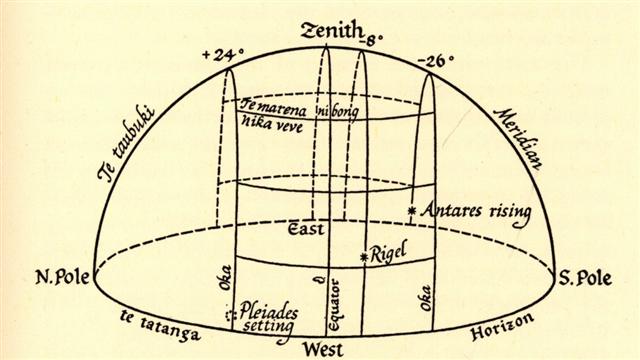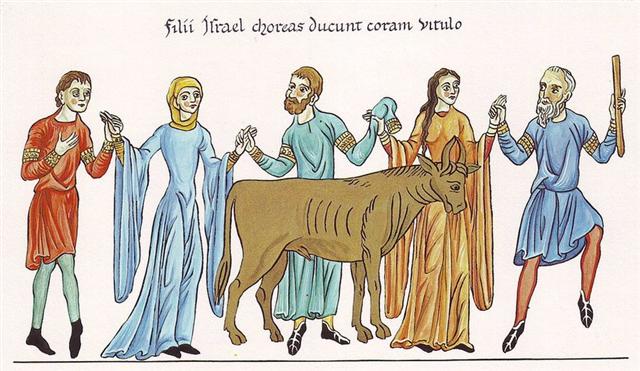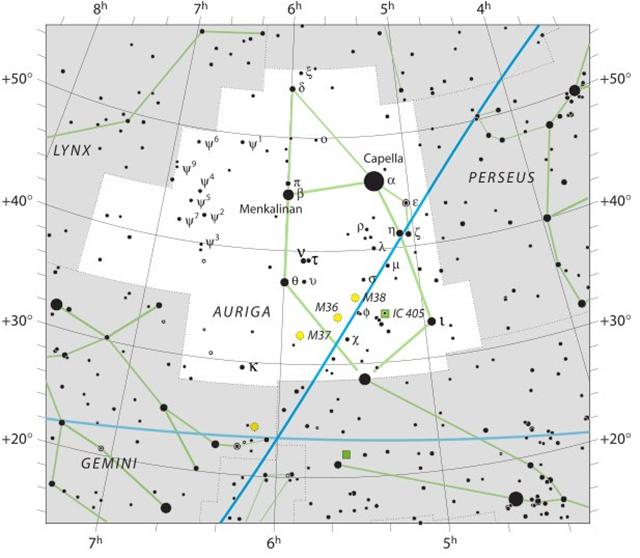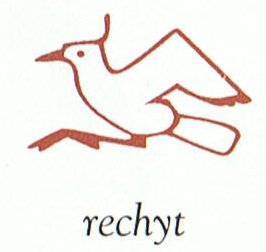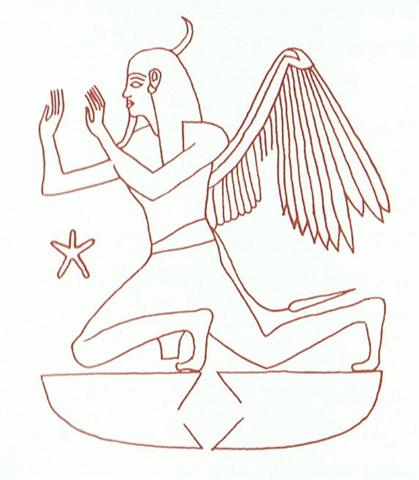|
584
30 However, far south of the equtor - on Easter Island - it was presumably not the Pleiades but Rigel which should be watched: ... In view of the almost universal prevalence of the Pleiades year throughout the Polynesian area it is surprising to find that in the South Island and certain parts of the North Island of New Zealand and in the neighboring Chatham Islands, the year began with the new Moon after the early morning rising, not of the Pleiades, but of the star Rigel in Orion ...
The right ascension distance from Schedir (*8) to Rigel (*78) was 70 days (→ 350 / 5) and the declination of Rigel (8° S) suggested a special kind of 'translation' from Schedir:
... The culmination of Thuban in June 7 coincided with where the Sun was bound to rise at Rigel according to my assumed era for rongorongo ...
... George Smith inferred from the tablets that it might be the Star of the Flocks; while other Euphratean names have been Lu-lim, or Lu-nit, the Ram's Eye; and Si-mal or Si-mul, the Horn star, which came down even to late astrology as the Ram's Horn. It also was Anuv, and had its constellation's titles I-ku and I-ku-u, - by abbreviation Ku, - the Prince, or the Leading One, the Ram that led the heavenly flock, some of íts titles at a different date being applied to Capella of Auriga ... Thus we have to add *6 'sleeping mats' (moega) to *64 (in the Era of the Golden Calf)
in order to reach down to the Era of Rigel (→ Capella).
June 7 (158) - 70 = 88 (29 March). ... The Pythagoreans make Phaeton fall into Eridanus, burning part of its water, and glowing still at the time when the Argonauts passed by. Ovid stated that since the fall the Nile hides its sources. Rigveda 9.73.3 says that the Great Varuna has hidden the ocean. The Mahabharata tells in its own style why the 'heavenly Ganga' had to be brought down. At the end of the Golden Age (Krita Yuga) a class of Asura who had fought against the 'gods' hid themselves in the ocean where the gods could not reach them, and planned to overthrow the government. So the gods implored Agastya (Canopus, alpha Carinae = Eridu) for help. The great Rishi did as he was bidden, drank up the water of the ocean, and thus laid bare the enemies, who were then slain by the gods. But now, there was no ocean anymore! Implored by the gods to fill the sea again, the Holy One replied: 'That water in sooth hath been digested by me. Some other expedient, therefore, must be thought of by you, if ye desire to make endeavour to fill the ocean ... ... Snorri Sterluson explains why 'Frodi's grist' is a kenning for gold. Frodi ruled during a peaceful and productive period, contemporaneous with Augustus's Pax Romana and the birth of Christ; hence the kenning. There were neither thieves nor robbers during this period, 'so that a gold ring lay long on Jalang's heath'. Snorri continues his account with the legend of the mill beyond what is told in the song: The girls' grinding produced an army hostile to Frodi. On the very day of the girls' predictions, the sea-king, Musing (Son of the Mouse), landed on the Danish shore, killed Frodi, and took away Grotti and the women on his ship. The girls were bidden to grind out salt on the mill. At midnight they asked for further instructions. 'Keep grinding', he told them. Then they ground with such vigor that the ship sank. Water poured into the eye of the mill, creating the maelstroem of the sea. Therefore the sea was salt. Incidentally, the mill was given a kenning, Serpent's Couch ... ... In Wales as a boy I learned to respect the lapwing for the wonderful way in which she camouflages and conceals her eggs in an open field from any casual passer-by. At first I was fooled every time by her agonized peewit, peewit, screamed from the contrary direction to the one in which her eggs lay, and sometimes when she realized that I was a nest-robber, she would flap about along the ground, pretending to have a broken wing and inviting capture. But as soon as I had found one nest I could find many. The lapwing's poetic meaning is 'Disguise the Secret' and it is her extraordinary discretion which gives her the claim to sanctity. According to the Koran she was the repository of King Solomon's secrets and the most intelligent of the flock of prophetic birds that attended him ...
|

